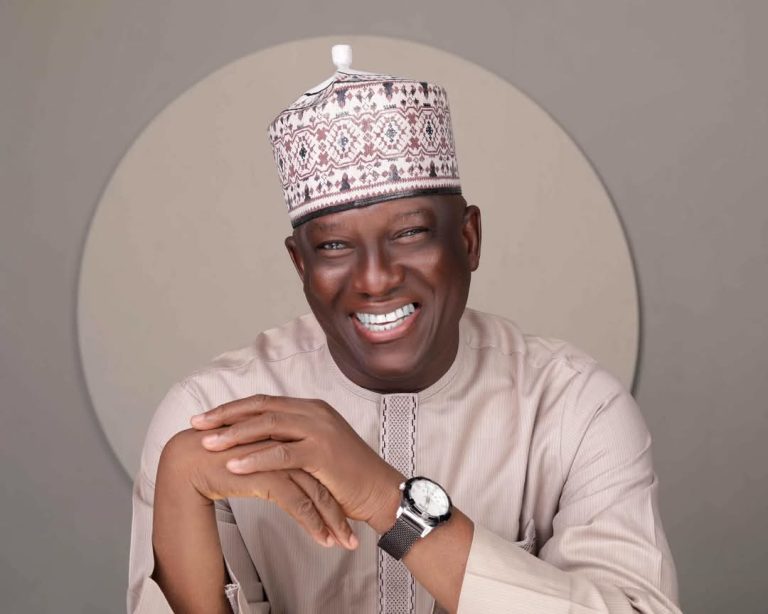Samuel P. Huntington, the American political scientist who spent more than half a century at Harvard University as an academic and adviser, has identified key attributes that define the power and structure of a dictatorship.
According to him, signs of dictatorship in a country include rule by one person or leader or by a small group of persons who exercise power without limitations, or exercise power with limited political pluralism and limited mass mobilization.
I think Nigeria exhibits all these signs and symptoms today and may soon be a dictatorship, if we do not participate in the next elections to prevent this from happening.
In dictatorships, Huntington further said, politics is controlled by one person, facilitated through an inner circle of elites that includes advisers, geals, and other high-ranking officials with a rubber-stamp parliament. In Nigeria, this includes excluding the vice president elected on the same ticket with the president as was done by President Olusegun Obasanjo against VP Atiku Abubakar from 2003-2007 and as is being done to VP Kashim Shettima today.
Dictatorship, according to Huntington, is where the dictator maintains control by influencing and appeasing his inner circle of leadership and repressing any opposition, including from rival political parties such as is being done to the main opposition party, the PDP, which is being destroyed by the installation.
In Africa, a dictator also rules through members of his immediate family and members of his ethnic group.
This is what is happening in Nigeria today.
Dictatorships often attempt to portray a democratic facade, frequently holding elections to establish their legitimacy or provide incentives to members of the ruling party, but these elections are not competitive for the opposition.
Several African nations are dictatorships with examples as eSwatini, Sudan, Egypt, Rwanda, Chad, Cameroon and countries where the military have taken control of power recently – Burkina Faso, Guinea, Niger and Mali.
Nigeria ceased to be a dictatorship following the death of Gen. Sani Abacha in June 1998 and the subsequent transfer of power to a democratically elected government by Gen. Abdulsalami Abubakar to President Olusegun Obasanjo in 1999.
President Obasqnjo who was military head of state from 1976 -1979 was also elected president from 1999-2007. However the first sign of dictatorship begin to appear under him in 2003 when he jettisoned his Vice President Atiku Abubakar in an attempt to pick another person as Vice, who would help him turn Nigeria into a dictatorship.
If Obasanjo had succeeded, he would either still be president today or his party, the PDP, would still be the ruling party under another dictator.
Many Nigerians believe that Nigeria cannot be a dictatorship since the defeat of Obasanjo’s inordinate ambition. But this, I think, is wrong. For even after the disgrace of Obasanjo, in 2007, if not for the sacrifice by some patriots, including the 7 PDP governors that left the party in 2014 and joined forces with APC’s coalition in the 2015 elections, the PDP, whose leaders had begun to exhibit all sort of dictatorial tendencies, would still be in power today.
The nation was the only military that shot down the Shehu Shagari regime in 1983 (though I hate military coups). At that time, the NPN people were in the habit of arrogantly exhibiting all manner of dictatorial tendencies.
I can remember clearly when leaders of the NPN rigged the 1983 elections in many states of Nigeria’s then 19-state structure through ‘landslide’ ‘, seaslide’, and ‘moon slide’ victories and even boasted that there were only 2 parties in Nigeria – NPN and the military. Even though the people had rejected the NPN in many states in 1983, the Federal Electoral Commission, FEDECO, then electoral umpire, declared victory for the NPN state after state, which the courts affirmed. I hope history will not repeat itself if APC governors fail to deliver their states in 2027.
It is tempting to liken what we have in Nigeria today to signs of dictatorship, as all the signs and symptoms are here, and the tendencies among APC leaders are very clear.
If as Huntington rightly said, the signs of dictatorship includes the presence of a single leader or a leadership by a small group of people, that dictatorship is the exercise of power with few limitations, or that it is a rule by limited political pluralism and limited mass mobilization, then Nigeria may, under the current leadership, end up a dictatorship if care is not taken.
Today, with one one-party state looming, people have become lethargic. Almost everyone is apathetic. We have developed a mindset that even if we vote, our votes will not count. People now say “abinda rubuta results din ma za’ayi”. This is the widely held view. And it is invariably a result of attempts to kill the PDP. If this happens and no opposition party emerges, a lot of people will not even bother to vote – shame of a nation.
Not only do very few members of the APC hold the reins of power in this government, but governors fear holding a divergent view within the party, while legislators do not present the voice of the people for fear of the risk of being denied an automatic re-election ticket. To further worsen the situation, the leadership of other political parties are joining the APC in droves either for fear of EFFC persecution or the desire to court favours from the president. With these, the road to complete dictatorship may be said to be well paved in Nigeria.
Thus, democracy is in peril in Nigeria. Today, when one party state is looming. When the rule by one person who has pocketed the parliament and exercises power without limitations is real, without political pluralism and with limited mass mobilization coupled with the failure of the opposition to unite and form a common front, we are in for a full-blown dictatorship.


